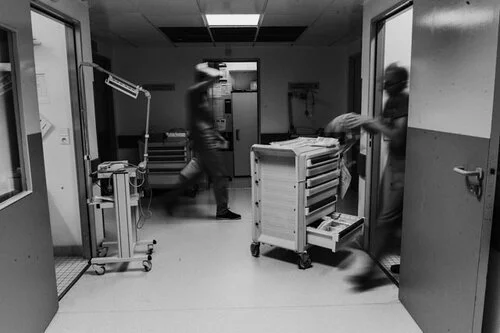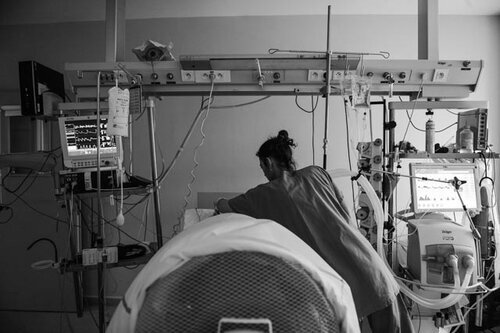Understanding intensive care
A lesser known medical speciality, intensive care is the specialty that is involved every time a patient faces a life-threatening condition. Regardless of the cause of their condition, be it a cardiovascular disease, complications due to cancer or a traffic accident, teams in intensive care work hard to save lives and ensure a complete recovery.
Every illness or accident can lead to an intensive care unit (ICU). On average, adults will be admitted to an ICU twice during their lifetime. Progress in intensive care has accompanied and made the progress of other medical or surgical specialties possible (ex: artificial ventilation, dialysis techniques, circulatory support…). An expensive specialty, intensive care monopolises 20 to 30% of hospital costs.
A public health issue
Intensive cares propels every discipline forward. It is a short term priority. Vital for the smooth running of any modern hospital, this speciality is also vital for all of us. On average, adults will be admitted to an ICU twice during their lifetime. Progress in intensive care means a reduction of the societal impact of serious diseases and a chance for the most seriously ill to get back to a normal life as quickly as possible.
Ensure quality care for all
In intensive care, processes are complex and in constant evolution. To optimise their application, teams have to be better accompanied and supported. In order for research to benefit each and every patient, staff need to be trained and provided with performance assessment tools to make them actors in the continuous improvement of the quality of care. Improving the experience of patients and their families is also part of the healing process, and ensures a less traumatic experience.
Step up research and its impact
Overall, 1 out of 4 ICU patients may die throughout the course of their hospital stay. Our understanding of the main symptoms that lead to intensive care is too limited and the clinical situations are complex. Intensive care research is insufficiently funded, and clinical trials are too few and too long. We need to develop innovative research programs of clinical and fundamental research to accelerate the creation of knowledge and move towards more precise intensive care methods.
« The need for intensive care will increase from 35 to 46% by 2030
»




